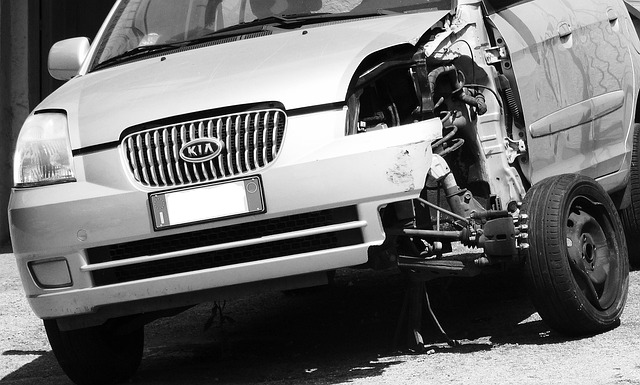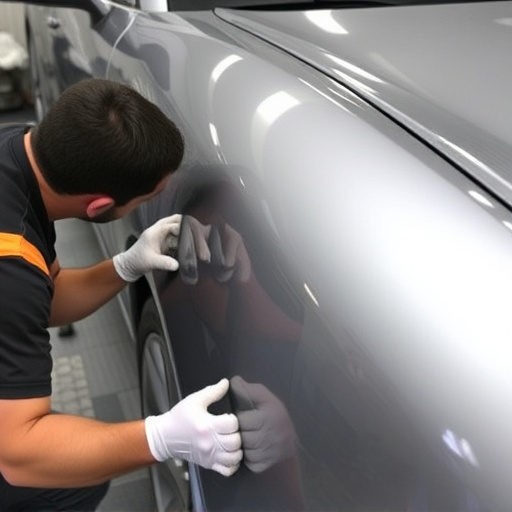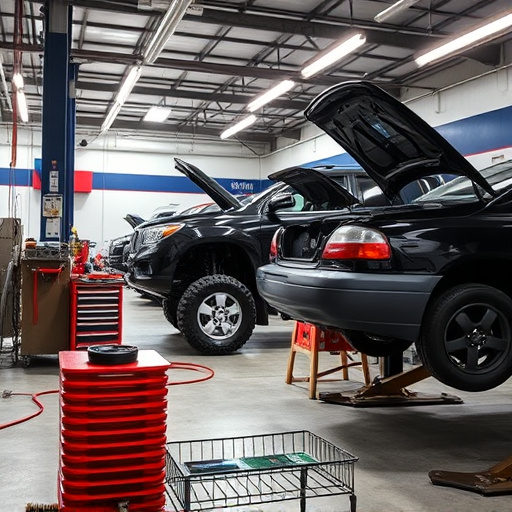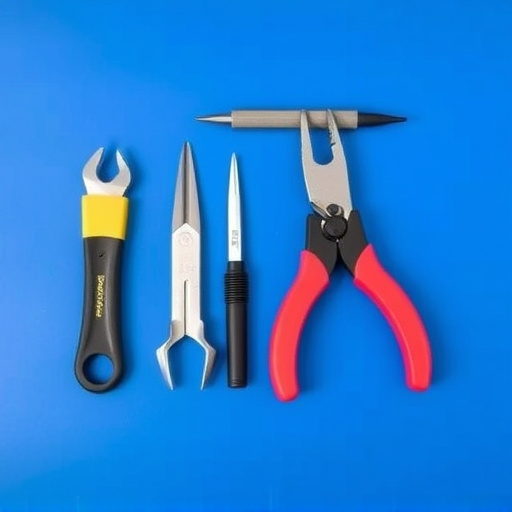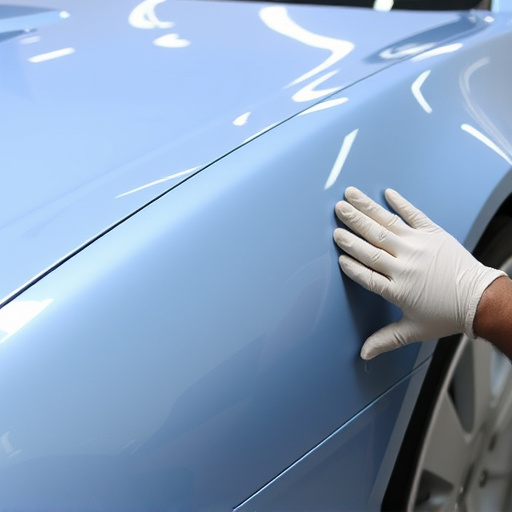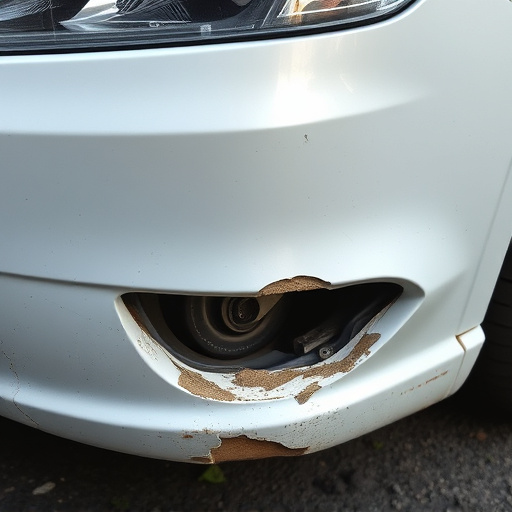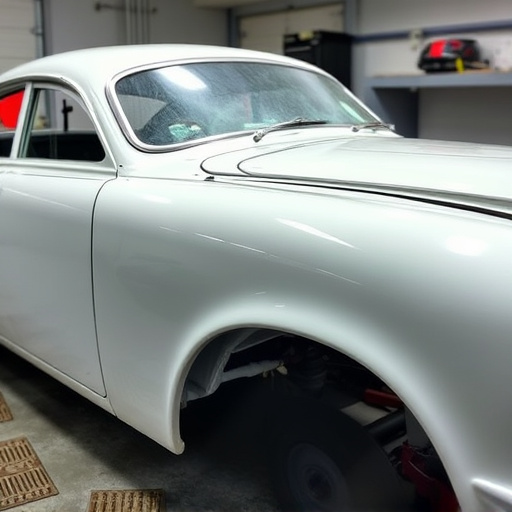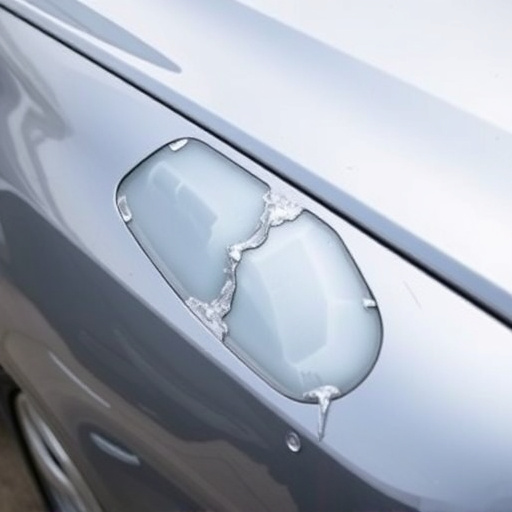The quality of repair craftsmanship is a decisive factor in insurance claim approvals for minor incidents. Meticulous repairs preserving original finishes, like paintless dent repair, are valued by insurers as they expedite processing, enhance customer satisfaction, and restore vehicles to like-new conditions. High-quality workmanship increases claim credibility and approval chances, while shoddy work can lead to denials or delays; thus, maintaining excellent repair craftsmanship quality is crucial for simplifying the process and building trust between policyholders and insurers.
The quality of repair work plays a pivotal role in insurance claim approvals, often overlooked yet profoundly influential. This article explores how meticulous craftsmanship can significantly impact insurers’ decision-making processes. We delve into the unseen factors that drive assessments, uncovering the relationship between repair techniques and claim approvals. Understanding these dynamics is crucial for policyholders and insurers alike, ensuring accurate evaluations and fostering trust in the claims process.
- Craftsmanship Quality: The Unseen Factor in Claims
- Impact of Repairs on Insurance Decision Making
- Ensuring Accuracy: Repair Techniques and Claim Approvals
Craftsmanship Quality: The Unseen Factor in Claims
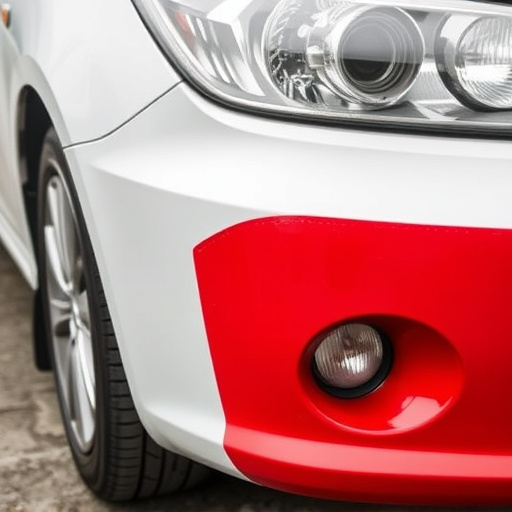
The quality of repair craftsmanship is a critical yet often overlooked aspect when it comes to insurance claim approvals for incidents like fender benders. While initial assessments typically focus on the visible damage, such as dents and scratches, the true indicator of a successful claim lies in the meticulousness of subsequent repairs. A skilled technician can perform tasks like paintless dent repair, ensuring that the vehicle’s original finish is preserved without the need for extensive repainting. This level of craftsmanship not only enhances the car’s overall aesthetics but also demonstrates the auto collision center’s commitment to quality and precision.
Insurers increasingly recognize the value of high-quality repairs in processing claims. Repairs executed with a keen eye for detail can mean the difference between an approved claim and a denied one. By prioritizing repair craftsmanship quality, auto collision centers foster trust with insurance providers, ensuring that their work meets or exceeds industry standards. This focus on excellence benefits all parties involved, leading to faster claim resolutions and satisfied customers who receive vehicles restored to like-new conditions.
Impact of Repairs on Insurance Decision Making

The quality of repairs plays a pivotal role in insurance claim approvals, significantly influencing the decisions made by underwriters and adjusters. When a vehicle undergoes automotive repair services, the craftsmanship involved directly correlates to the credibility of the claim. High-quality repairs, especially for vehicle bodywork or car bodywork restoration, act as a testament to the skill and integrity of the repairing workshop. This, in turn, enhances the trustworthiness of the claim, increasing the likelihood of approval.
On the contrary, shoddy or inferior repair work can raise red flags for insurance providers. Insufficient attention to detail, incorrect techniques, or subpar materials used may signal potential fraud or lack of expertise. As a result, insurance companies might deny claims or request additional evidence, making the approval process more cumbersome. Thus, maintaining excellent repair craftsmanship quality is essential for streamlining insurance claim approvals and fostering a positive relationship between policyholders and insurers.
Ensuring Accuracy: Repair Techniques and Claim Approvals
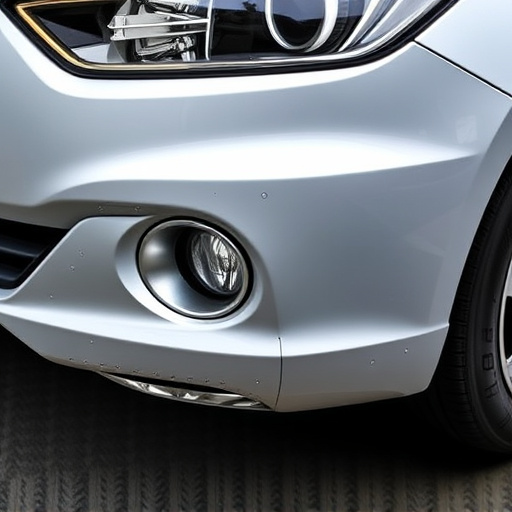
The precision and accuracy of repairs play a pivotal role in insurance claim approvals, especially when it comes to automotive restoration and dent repair. Insurance companies are increasingly scrutinizing the quality of craftwork to ensure claims are valid and prevent fraud. Reputable car bodywork services invest heavily in training their technicians to deliver meticulous repairs, aligning with original equipment manufacturer (OEM) standards. This attention to detail includes using advanced tools and techniques for tasks like panel alignment, paint matching, and structural integrity checks.
By adhering to these strict standards, repair shops demonstrate the reliability and validity of their work, making insurance claim approvals more straightforward. Conversely, subpar workmanship or obvious alterations may raise red flags, leading to claim denials. Thus, consumers should opt for reputable automotive restoration services that prioritize repair craftsmanship quality to ensure smooth insurance processes and the best outcomes for their vehicles.
Repair craftsmanship quality plays a pivotal role in insurance claim approvals, with meticulous repairs significantly influencing decision-making processes. By ensuring accuracy and attention to detail, skilled artisans can enhance claim validity and improve approval rates. This, in turn, benefits both policyholders and insurers, fostering trust and streamlining the claims process. Investing in high-quality repair craftsmanship is thus a strategic move, ensuring that insurance claims are fairly assessed and settled efficiently.
